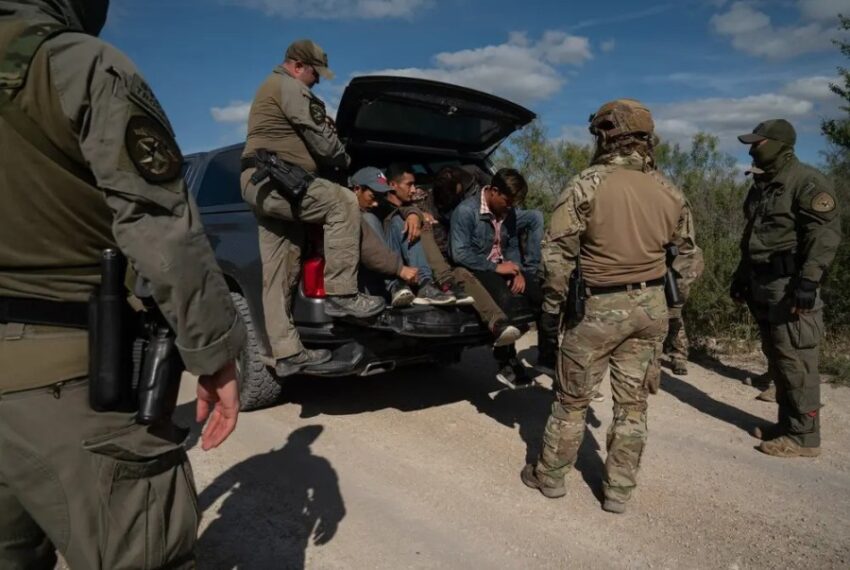Migrant advocates mobilize to influence lawmakers as the Texas Legislature votes on border security bills during its 30-day special session.
The legislation includes Senate Bill 4, which increases to 10 years in prison sentences for smuggling migrants or operating a “stash” house; SB 11, which makes illegal entry into Texas a state crime and authorizes state police to arrest violators; and companion bills in the House.
“The Senate has already passed these bills, but there is hope in the House. […] There is a limited amount of time to make them listen to the voices of border communities because those voices are not being heard,” said Luis Figueroa, chief of legislative affairs for Every Texan, an Austin-based advocacy group.
Figueroa and other Texas advocates voiced their opposition to the bills. They discussed strategies to stop them and other state immigration enforcement initiatives during a Friday online seminar sponsored by the Frontera Texas Coalition.
Some of the lawmakers being targeted for calls and emails include State Reps. Todd Hunter, R-Corpus Christi, chair of the State Affairs Committee, and John T. Smithee, R-Amarillo, also a member of the committee.
Figueroa said the federal government and some states have been relying on enforcement-only approaches to irregular migration, and none of them have worked – the migrants keep coming. Further, the bills in the special session usurp federal prerogatives, potentially can send to jail people in mixed-status families traveling with their undocumented relatives, and will further “militarize” border communities, Figueroa and others said.
“We are calling on the Texas Legislature to have the courage to confront this anti-immigrant, xenophobic agenda. Enforcement of immigration laws is not a state prerogative,” said Fernando Garcia, executive director of the El Paso-based Border Network for Human Rights.
Calling on feds to challenge Operation Lone Star
The groups also are calling on the legislature and on the federal government to challenge Texas Gov. Greg Abbott’s Operation Lone Star, which in the past two years has cost the state more than $4 billion and surged thousands of Texas Department of Public Safety troopers and Texas National Guard troops to border communities.
“We are wasting money in a politically motivated operation. We are adamant in saying it is not the job of the Texas National Guard to be arresting migrants. They should be withdrawn. Garcia said that the concertina wire, the physical barriers, and the river buoys” should be withdrawn, adding that the $5 billion that will fund Operation Lone Star in the coming two years should instead be spent on health care and infrastructure in underserved border communities.
Garcia called for a Department of Justice investigation into Operation Lone Star for alleged civil rights abuses and migrant injuries in the past two years.
Maria Codero, policy and advocacy analyst for the American Civil Liberties Union in Texas, echoed concerns that the state barriers at the border are leading to migrant injuries, drownings, and migrants opting to risk their lives traveling through remote areas because they cannot turn themselves in between ports of entry to file asylum claims.
More than 1,000 migrants died last year along the U.S.-Mexico border, and advocates are expecting that record to be shattered this year due to the growing number of migrants trying to cross the border and unusually high temperatures, particularly in desert areas.
Irregular migration in ‘freefall’ at border, opponents say
Abbott started Operation Lone Star in March 2021 in response to an unprecedented surge in irregular migration coinciding with President Biden taking office. According to official U.S. Customs and Border Protection data, the surge continued after a brief lull in June.
The numbers show 2.2 million migrant apprehensions (1,83 million between ports of entry, 379,000 at ports of entry) during the first 11 months of fiscal year 2023 — just along the Southwest border.
The numbers in August reveal “a border in freefall,” according to the conservative think-tank Center for Immigration Studies. The group late last month warned “the worst is yet to come.”
Read: Read More




